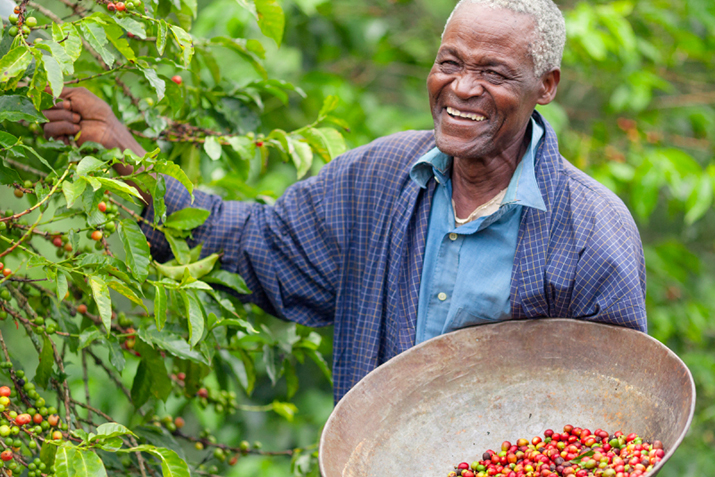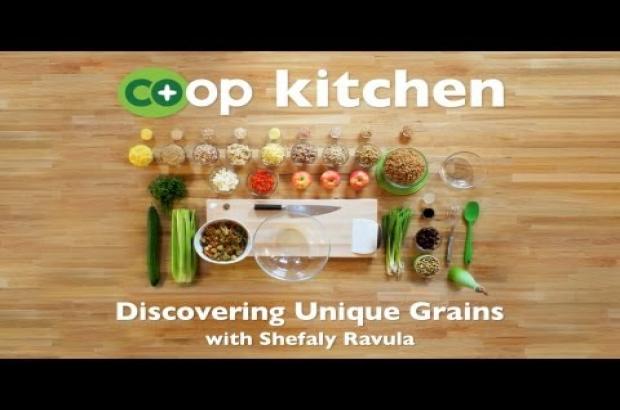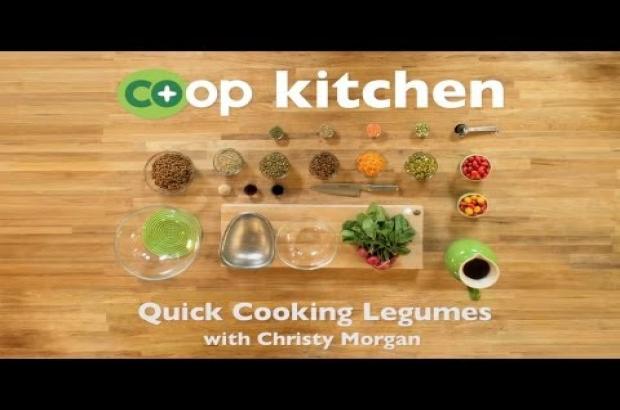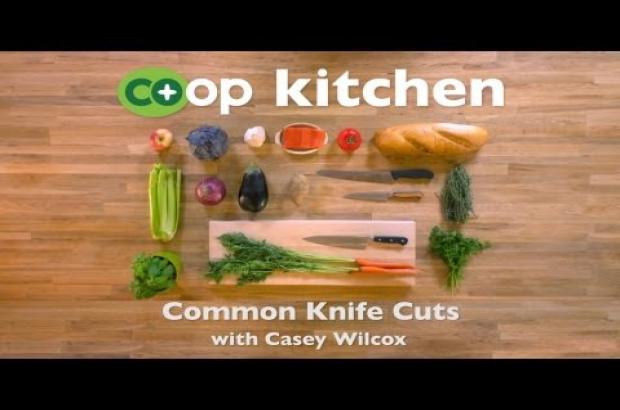Discovering Unique Grains
From barley to wheatberries, Shefaly Ravula takes us on a quick tour of hearty and versatile whole grains you can incorporate into nearly any meal.
Find more Co+op Kitchen videos featuring information and easy recipes for making delicious meals at home, as well as handy hints from chefs and food enthusiasts who love sharing their passion for great food.
Video Transcript
Hi there. My name is Shefaly from Shef's Kitchen. Today I want to talk to you about grains.
We are going to start by showing you quite a wide variety right here, and we are going to tell you one by one what they all are.
Types of grains
Wheat berries
This is dried wheat berries, red winter wheat which can be found in the bulk section, for example, in your local co-op, or you can find them packaged as well.
Barley
This is barley. Barley most people are already familiar with.
Quinoa
Quinoa has gotten pretty popular. This is rainbow quinoa, one of the shortest cooking grains out there, and it is an unrefined grain. [Quinoa is technically a seed, not a grain, but it’s cooked and eaten like a grain.]
Kasha
Here we have kasha and some cooked kasha. A lot of people use this in porridges and oatmeal type-consistencies.
Millet
This is dry millet. It looks like a little golden, yellow color, like cornmeal almost. When it's cooked it can be almost like a porridge. So you'll find bread made out of millet, and you can also use millet in cereals and oatmeal.
Oats
Here we have some rolled oats, which many people are already familiar with.
Farro
And here we have farro. Farro raw looks a lot like the wheat berries. It just doesn't have as much of a seam down the middle. You'll hear about Italian dishes using farro, and it's sauced much like pasta is because of the large grains.
Amaranth
Here we have some amaranth, and amaranth looks a lot like quinoa, but it's tinier. So it's spherical but much smaller, and it cooks fast, just like quinoa does.
Corn grits
And here we have corn grits. The cooked version and the raw.
If you want to hide the texture of your grain, you might want to use a smaller grain. Quinoa, for example, is great for that. Large grains are great for textures.
Grains are a versatile and inexpensive staple for every kitchen. You can find more information about grains along with some delicious recipes on our website.
I'm Shefaly for Co+op, stronger together.













